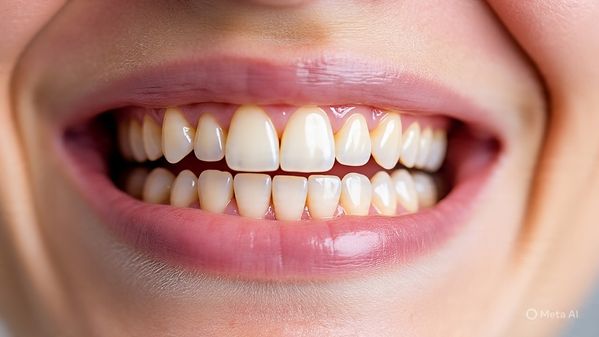Introduction: Struggling with Missing Teeth? You’re Not Alone
8 Signs That You Need Dental Implants If you’ve lost a tooth—or a few—you’re not just dealing with a cosmetic issue. Many of my patients arrive worried about how their smile looks, but by the time we dig deeper, we uncover something more serious: problems with chewing, speech, or jaw health.
Dental implants aren’t just about appearances. They’re a permanent, life-changing solution for restoring both the form and function of your smile. Unlike removable dentures or bridges, dental implants replace missing teeth at the root, offering unmatched stability and preserving bone health.
In this article, I’ll walk you through 8 clear signs that you might need dental implants. If any of these sound familiar, it could be time to consult with an implant dentist for a personalized evaluation.
1. You Have One or More Missing Teeth
Why It Matters:
Missing teeth aren’t just a cosmetic concern—they impact your bite, speech, and long-term oral health. When you lose a tooth, the surrounding teeth start shifting, affecting alignment and even your facial structure.
Risks of Doing Nothing:
-
Bone Loss: Without the stimulation of a tooth root, your jawbone begins to shrink (a process called resorption).
-
Shifting Teeth: Neighboring teeth begin drifting into the empty space, leading to misalignment and bite issues.
-
Chewing Difficulty: Even one missing tooth can compromise your ability to chew properly.
Dental implants replace the missing root and crown, maintaining alignment and preventing bone deterioration.
2. You’re Struggling to Chew or Bite Properly
Do you avoid certain foods like steak, apples, or crusty bread? Many of my patients share how they subconsciously adapt their diet over time. Chewing problems can indicate more than weak teeth—it may mean you’re missing the structural support only implants can provide.
How Implants Help:
-
Restore full chewing power (up to 90–95% compared to natural teeth)
-
Let you eat your favorite foods again without worry
-
Reduce digestive problems caused by improper chewing
Permanent tooth restoration through implants means you’re not stuck with soft foods forever.
3. You Have Loose Dentures or Partials
The Frustration of Slipping Dentures:
If your dentures are moving while you speak or eat, you’re not alone. This is one of the most common complaints I hear from long-time denture wearers. It’s uncomfortable, embarrassing, and limits your diet.
Why It Happens:
-
Dentures sit on the gum, not anchored into the jaw
-
Jawbone shrinkage over time causes dentures to fit poorly
How Dental Implants Solve It:
-
Implant-supported dentures lock into place
-
No more messy adhesives
-
Improved confidence during meals and conversations
Patients often tell me, “It feels like I have real teeth again.”
4. You Have a Severely Cracked or Broken Tooth
Sometimes a tooth is too damaged to save—even with a crown. If decay or trauma has compromised the structure down to the root, it’s often safer and healthier to extract it and replace it with an implant.
Common Scenarios:
-
Root fracture
-
Failed root canal
-
Large cavities or infections beyond repair
In these cases, a dental implant provides a clean, lasting solution without relying on adjacent teeth (like with bridges).
5. You’re Experiencing Jawbone Loss
This is one of the lesser-known but most serious consequences of tooth loss.
What Causes Bone Loss?
-
Missing teeth mean missing root stimulation
-
Over time, the body resorbs that part of the jaw
-
Your face may begin to appear “sunken” or prematurely aged
How Implants Help:
-
Implants mimic the root of a tooth, signaling your body to maintain bone mass
-
Help maintain facial structure and prevent sagging
Jawbone loss can be reversed or halted with timely implant treatment. In many cases, we also use bone grafting to rebuild the site first.
6. You’re Self-Conscious About Your Smile
This is more common than you might think. Many patients feel too embarrassed to smile in photos or laugh in public due to missing teeth or visible gaps. Over time, this impacts not just your social life, but your self-worth.
What Implants Restore:
-
A natural-looking, confident smile
-
No visible metal or shifting parts
-
Long-term self-esteem and mental well-being
A beautiful smile is more than vanity—it’s about how you feel when you look in the mirror. Dental implants can help restore that confidence.
7. You Have Chronic Tooth Infections or Severe Gum Disease
If you’ve been battling recurring dental infections or advanced periodontal disease, your teeth may be at risk—even if they look fine now.
Warning Signs:
-
Frequent abscesses or pus around the gumline
-
Bad breath that doesn’t go away
-
Loose teeth from gum recession
When Extraction & Implants Are Wiser:
In cases where the natural tooth cannot be saved, an implant may be the best long-term choice. After clearing the infection and ensuring bone health, we can often place a dental implant in the same area—restoring your health and smile.
8. Your Bridge or Crown Keeps Failing
Bridges and crowns have a lifespan—and sometimes, they fail prematurely due to wear, decay, or poor fit. If you’ve already had one or more replaced, or if you’re constantly needing adjustments, it may be time to consider a more permanent solution.
Why Implants Last Longer:
-
They’re anchored into the jawbone, not relying on adjacent teeth
-
With proper care, implants can last 25+ years, often a lifetime
-
They don’t decay or require enamel shaving of other teeth
Many of my long-term patients who transitioned from bridges to implants say they wish they’d made the switch sooner.
Final Thoughts: When It’s Time to Consider Dental Implants
If one or more of these signs sound familiar, you’re not alone—and you don’t have to live with discomfort, embarrassment, or constant dental work.
Let’s recap the 8 signs that you might need dental implants:
-
You have one or more missing teeth
-
You’re struggling to chew or bite properly
-
Your dentures or partials are loose
-
You have a tooth that’s cracked or broken beyond repair
-
You’re experiencing jawbone loss
-
You’re self-conscious about your smile
-
You’re dealing with chronic infections or gum disease
-
Your bridge or crown keeps failing
Dental implants aren’t just a cosmetic fix—they’re a functional, health-preserving solution that helps restore quality of life. Whether you’ve been missing teeth for years or just recently started noticing chewing problems, now’s the time to explore your options.
If you recognize any of these signs, consult a qualified dental implant specialist. Every mouth is different, and a personalized evaluation is the first step to getting your confidence—and your bite—back for good.
Ready to take the first step? Book a consultation with an experienced implant dentist today to learn if implants are right for you.



